Never stop learning.
Questions? Call 1-855-476-5080

2026 Solar Eclipse Cruise:
Totality in The Mediterraneanwith Sarah Rugheimer
FRANCE & SPAIN

_-_geograph.org.uk_-_6277419%201-v1.jpg)





Great Music Masters of Italy: Verdi and Italian Opera
with Robert Greenberg
ITALY
ENGLAND & FRANCE
D-Day: Courage, Conflict, and History in England and France with Ed Lengel
Great Music Masters of Vienna: The Romantics
with Robert Greenberg
Enchanted England: Folklore, Fairy Tales, and Wonder
with Sara Cleto and Brittany Warman
Revisiting World War 1 in France
with Keith Huxen
Exploring Cuba: From Trinidad
to Havana
with Joyce Salisbury
Great British Mysteries: Conan Doyle, Christie, and More
ENGLAND
ENGLAND
FRANCE
CUBA
AUSTRIA

Travel with Insight, Explore with Passion
CLOSE MENU

Travel with Insight, Explore with Passion



Travel with Insight, Explore with Passion

These folks “wrote the book”—or, in this case, taught the course—on the experiences offered by The Great Courses Journeys.
The Great Courses Journeys Expert Leaders
Meet the
Read More
Joyce E. Salisbury is Professor Emerita of Humanistic Studies at the University of Wisconsin–Green Bay, where she taught history and served as associate dean of Liberal Arts and Sciences and director of International Education. She earned her Ph.D. in Medieval History at Rutgers University, specializing in religious and social history.
Professor Salisbury began her career performing research in Spain, and she has continued to travel there to conduct further research, lecture, and guide students and other travelers. She is currently working on a book about the history of early Christian martyrdom.
In addition to receiving the University of Wisconsin’s Outstanding Teaching award, she was named Professor of the Year in 1991 by the Council for Advancement and Support of Education. She has taught three times on Semester at Sea, a study-abroad program on a ship that circumnavigates the world with more than 500 students for a full semester.
Professor Salisbury is a prolific author whose books include the award-winning Perpetua’s Passion: Death and Memory of a Young Roman Woman; The Beast Within: Animals in the Middle Ages; Rome’s Christian Empress: Galla Placidia Rules at the Twilight of the Empire; and the widely used textbook The West in the World. She has been interviewed many times on National Public Radio on topics from religion to the books she has written, and she appeared on the PBS special The Road from Christ to Constantine.
Joyce Salisbury

Ken Albala
Dr. Ken Albala is a Professor of History at the University of the Pacific in Stockton, California, where he won the Faye and Alex Spanos Distinguished Teaching Award and has been teaching for more than two decades. He earned his PhD in History from Columbia University. Professor Albala is the author or editor of more than two dozen books on food, including Eating Right in the Renaissance; Food in Early Modern Europe; Cooking in Europe, 1250–1650; The Banquet: Dining in the Great Courts of Late Renaissance Europe; Pancake: A Global History; and Beans: A History, winner of the International Association of Culinary Professionals Jane Grigson Award. He also edited the four-volume Food Cultures of the World Encyclopedia and coedited the journal Food, Culture & Society. His textbook Three World Cuisines: Italian, Mexican, Chinese won the Gourmand World Cookbook Award for Best Foreign Cuisine Book in the World. Professor Albala has created two Great Courses: Food: A Cultural Culinary History and Cooking Across the Ages.

Patrick Allitt
Patrick Allitt

Dr. Patrick N. Allitt is Cahoon Family Professor of American History at Emory University, where he has taught since 1988. He has led student and adult tours abroad for decades. Professor Allitt received his PhD in American History from the University of California, Berkeley, and completed postdoctoral fellowships at Harvard Divinity School and Princeton University. He is a widely published author whose books include A Climate of Crisis: America in the Age of Environmentalism; The Conservatives: Ideas and Personalities throughout American History; and Religion in America since 1945: A History. Professor Allitt has created more than 10 Great Courses, including The Industrial Revolution; The American West: History, Myth, and Legacy; and The Great Tours: England, Scotland, and Wales.
Pamela Bedore
Dr. Pamela Bedore is an Associate Professor of English at the University of Connecticut. She has taught courses in Sherlock Holmes, American Detective Fiction, The Monster in Literature and Culture, Stephen King, and much more. Professor Bedore was the winner of AAUP (American Association of University Professors) Excellence Awards in Teaching Promise and then in Teaching Innovation. She has published widely on science fiction, detective fiction, and writing administration in such journals as Foundations: The International Review of Science Fiction, Studies in Popular Culture, and Writing Program Administrator, and is the book review editor for Clues: A Journal of Detection. Her first book, Dime Novels and the Roots of American Detective Fiction, was published in 2013. Professor Bedore earned her PhD from the University of Rochester. For The Great Courses, she created Great Utopian and Dystopian Works of Literature.

Karen Bellinger

Dr. Karen Bellinger is an anthropologist, archaeologist, and historian who has investigated sites in Europe, Africa, and North and South America, exploring human mysteries from prehistory through the 21st century. Much of her research has focused on early modern European culture and society, and its colonial expansion throughout the Atlantic World from the 16th through 21st centuries. Professor Bellinger presents and consults for a wide range of history programs on media outlets such as National Geographic and the Science Channel. Committed to public archaeology and everyday learning, she created a Scholastic and Parents’ Choice award-winning time travel adventure game called The Time Tribe, develops interactive visitor experiences for museums and heritage sites, and writes multimedia historical fiction. She earned her PhD in anthropology from New York University. Professor Bellinger has worked with many universities and heritage institutions, including the Colonial Williamsburg Foundation, the College of William & Mary, Queen Mary University of London, the Museum of London, Plimoth Plantation, Yale educational travel, and primary schools in the U.S. and U.K. For The Great Courses, Professor Bellinger is developing a course on great archaeological mysteries.
Alissa Branch

Alissa Branch is an Associate Professor of Acting in the Helmerich School of Drama at the University of Oklahoma, where she created an advanced Shakespeare performance curriculum. She also serves as the Associate Artistic Director for the professional theatre company, Oklahoma Shakespeare. Born in Hastings, England, and raised in Oklahoma, Professor Branch discovered her love of storytelling at an early age and has presented acting/audition workshops in theatres and educational settings across the United States, the UK, and in South Africa. As an actor and director, her productions have several national awards. Her directorial credits include Shakespeare’s Julius Caesar and Twelfth Night, among other plays. Professor Branch has studied acting at the Denver Center for the Performing Arts and Shakespeare’s Globe, and she earned her MA in Drama from Washington University in St. Louis. For The Great Courses, she created Experiencing Shakespeare: From Page to Stage.
Robert Bucholz

Dr. Robert Bucholz is Professor of History at Loyola University Chicago, where he has taught since 1988. He is a leading authority on the history of the British court, the social history of early modern England, and the emergence of London as global cultural center during and after the 16th century. Professor Bucholz has appeared frequently as a public speaker and in local, national, and international media outlets to comment on historical and royal topics ranging from the Tudors to the Titanic, plague and fire in London to royal births, weddings and funerals. Professor Bucholz is also the project director of the Database of Court Officers, which contains the career facts of every person who served in the British royal household from the Restoration to the death of Queen Victoria. He earned his D.Phil. in Modern History from Oxford University. He is the author or coauthor of several books on English history, including Early Modern England: A Narrative History and The Augustan Court: Queen Anne and the Decline of Court Culture. His Great Courses include A History of England from the Tudors to the Stuarts, The Foundations of Western Civilization II: A History of the Modern Western World, and London: A Short History of the Greatest City in the Western World.
Bernard Carlson
Dr. W. Bernard Carlson is the Joseph L. Vaughan Professor Emeritus of Humanities, Professor Emeritus of Engineering and Society, Program Manager, AgInnovation, University of Galway, Ireland, through the University of Virginia. He is a historian of science and technology, committed to helping public audiences understand the role of technology in society. Professor Carlson received his PhD in the History and Sociology of Science from the University of Pennsylvania. He has received the Sally Hacker Prize from the Society for the History of Technology and the IEEE’s Middleton Award in Electrical History. Professor Carolson’s biography of Nikola Tesla has been translated into 9 languages. At the University of Virginia he helped create the Committee for the History of Environment and Technology and created both the Engineering Business minor and the Technology Entrepreneurship programs. Professor Carlson teaches the Great Course Understanding the Inventions that Changed the World.
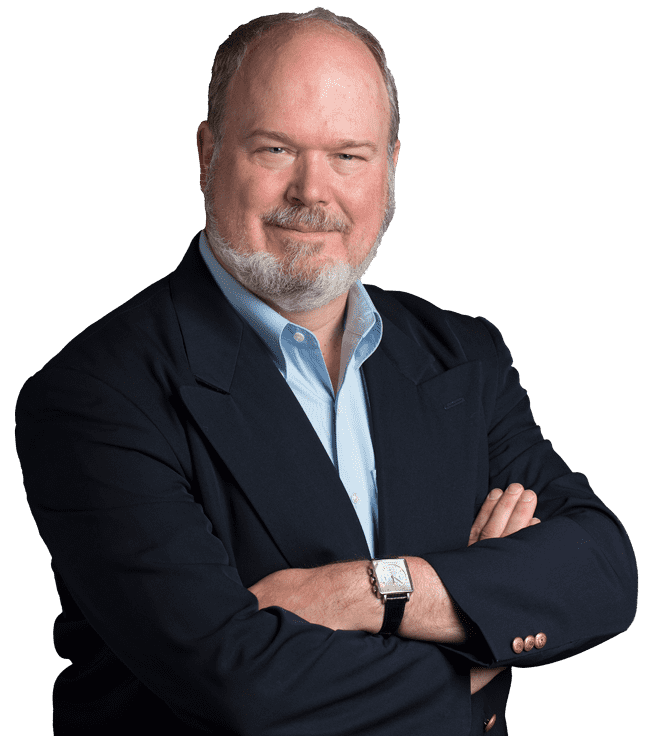
Sara Cleto
Dr. Sara Cleto is a folklorist, teacher, and writer based in Atlanta, Georgia. She earned her PhD in English and Folklore from the Ohio State University writing her dissertation on folklore and disability. Sara has authored and coauthored dozens of articles, academic reviews, and conference papers and has lectured at venues across the US and the UK, including The International Conference on the Fantastic in the Arts and The American Folklore Society. She is also cofounder of The Carterhaugh School, which won the Dorothy Howard Prize from the American Folklore Society for their work in bringing scholarly rigor to the field of fantasy literature.

Dr. Maureen Corrigan is the Nicky and Jamie Grant Distinguished Professor of the Practice in Literary Criticism at Georgetown University. She received her PhD in English Literature from the University of Pennsylvania. She is the book critic for the NPR program Fresh Air and has received multiple awards for her literary criticism. She also regularly writes for The Washington Post and The Wall Street Journal and is the author of the literary memoir Leave Me Alone, I’m Reading and So We Read On: How “The Great Gatsby” Came to Be and Why It Endures. She is the expert presenter for the Great Course Banned Books, Burned Books: Forbidden Literary Works which traces the history of book banning and censorship in the English-speaking world and see why it continues today.
Maureen Corrigan

Monica S. Cyrino
Dr. Monica S. Cyrino is a Professor of Classics at the University of New Mexico. Her research centers on Greek and Roman poetry, Aphrodite and Ancient eros, and Classical portrayals in film and television. Professor Cyrino has led student tours through Greece and Italy and frequently gives talks around the world on classics and popular culture in addition to serving as an academic consultant for numerous feature films and television productions. An esteemed teacher, she’s won numerous teaching awards including the national Society for Classical Studies’ Excellence in Teaching Classics Award, UNM’s Outstanding Teacher of the Year Award, the Presidential Teaching Fellowship Award, the College of Arts & Sciences Teaching Award, and the UNM Alumni Association Faculty Teaching Award. Professor Cyrino is the author of many popular and academic books, including the widely used textbook, A Journey Through Greek Mythology. She earned her PhD in Classical Philology at Yale University. For the Great Courses, Professor Cyrino created an Audible Original Sex Scandals of Ancient Greece and Rome.

Sharika Crawford
Sharika D. Crawford is a historian of modern Latin America and the circum-Caribbean. She is a tenured professor at a four-year undergraduate institution in the United States. Her book The Last Turtlemen of the Caribbean: Waterscapes of Labor, Conservation, and Boundary Making was published by the University of North Carolina Press in 2020. The Elsa Goveia Book Prize Committee of the Association of Caribbean Historians awarded it an honorable mention in 2021. Most recently, in 2025, she co-edited Understanding and Teaching Modern Latin America,which was published by the University of Wisconsin Press. Since her first study abroad trip in Mexico as a teenager, Dr. Crawford has enjoyed traveling internationally. She has led short-term cultural immersion trips in the Caribbean, South America, and West Africa.

Marshall Eakin

Dr. Marshall Eakin is a Distinguished Professor of History, Emeritus, at Vanderbilt University, where he has taught since 1983. He has taught Latin American history to undergraduate- and graduate-level students for more than four decades. Professor Eakin’s wide variety of course topics have ranged from colonial and modern Latin American history to reform and revolution in Latin America, and much more. He earned his PhD from UCLA and has won numerous teaching awards throughout his distinguished career, including twice the Alumni Education Award from the Vanderbilt Alumni Association. Professor Eakin is the author of five books, including The History of Latin America: Collision of Cultures. He has created two Great Courses: The Conquest of the Americas and The Americas in the Revolutionary Era.
Eamonn Gearon

Dr. Eamonn Gearon is an author and historian. He has spent decades living and working across the Middle East and North Africa (MENA), including leading tours and taking solo, camel-powered explorations of the Sahara. Professor Gearon relishes his role of public historian and speaker, and his work that blends history, culture, and contemporary affairs. He has taught at the Universities of Oxford, Johns Hopkins-SAIS, in Washington DC, and the American University in Cairo. Professor Gearon has created and run MENA training for both the US Department of State and Britain’s Foreign, Commonwealth, and Development Office for more than a decade. He has a DPhil in History from Oxford University. Eamonn is the author of The Sahara: A Cultural History (2011); The Arab Bureau: The Story of Britain’s Most Ingenious Intelligence Unit (Nov. 2025); and Lawrence of Arabia: A Love Story (2026), which last title also forms the basis of a one-man show. His Great Courses include The History and Achievements of the Islamic Golden Age, Turning Points in Middle Eastern History, and The Middle East in the 20th Century.
Dr. Robert Greenberg is Music Historian-in-Residence with San Francisco Performances. A graduate of Princeton University, Professor Greenberg holds a Ph.D. in Music Composition from the University of California, Berkeley. He has seen his compositions–which include more than 45 works for a wide variety of instrumental and vocal ensembles–performed all over the world, including New York, San Francisco, Chicago, Los Angeles, England, Ireland, Greece, Italy, and the Netherlands.
He has served on the faculties of the University of California, Berkeley; California State University, Hayward; and the San Francisco Conservatory of Music, and has lectured for some of the most prestigious musical and arts organizations in the United States, including the San Francisco Symphony, the Lincoln Center for the Performing Arts, the Van Cliburn Foundation, and the Chicago Symphony. For The Great Courses, he has recorded more than 500 lectures on a range of composers and classical music genres.
Professor Greenberg is a Steinway Artist. His many other honors include three Nicola de Lorenzo Composition Prizes and a Koussevitzky commission from the Library of Congress. He has been profiled in various major publications, including The Wall Street Journal; Inc. magazine; and the London Times.
Robert Greenberg

Sheila Hoffman

Dr. Sheila Hoffman is a scholar of art history, world cultures, and symbols who has taught and lectured around the world as a guest of governments, universities, and on tours. She is Senior Lecturer in Art History at the University of Massachusetts Lowell. Professor Hoffman has two doctoral degrees: one in Art History from The Sorbonne in Paris and the other in Museology from the Université du Québec à Montréal. She has appeared on many science-based television series, appearing on the Science, Discovery, and Travel Channels among others as an expert contributor on numerous topics related to ancient cultures and religions. The author of several books and articles, she serves as the Reviews Editor for the International Museum Worlds Journal. Professor Hoffman is currently working on her first Great Course, on the great libraries of world history.
Keith Huxen

Dr. Keith Huxen is the Senior Historian at the Henry M. Jackson Foundation in support of the Defense POW/MIA Accounting Agency and was previously the Senior Director of Research and History in the Institute for the Study of War and Democracy at The National WWII Museum. An expert in 20th-century military and diplomatic history, Professor Huxen has extensive experience leading tours and delivering lectures at battle and historical sites in Russia, the United Kingdom, France, Germany, Poland, China, and Taiwan. He has taught at Arizona State University, the University of New Orleans, and Louisiana State University. Professor Huxen holds a PhD degree in American history from George Washington University, specializing in the diplomatic, military, and international history of the 20th century. He has published articles on military history in numerous academic journals and created World War II: Up Close and Personal for The Great Courses.
Jean-Pierre Isbouts
Dr. Jean-Pierre Isbouts is a historian, biblical scholar, author, and filmmaker. He is faculty emeritus at Fielding Graduate University, where he served for 15 years as a member of the doctoral faculty. Professor Isbouts has led tours for several decades to Europe, the Middle East, and beyond, and delivered public talks all over the world. A best-selling author, he gained worldwide renown with his National Geographic book The Biblical World and also wrote Archaeology of the Bible, In the Footsteps of Jesus, and The Dead Sea Scrolls, which has sold more than 2 million copies. Together with Christopher Heath Brown, he is co-author of three books on Leonardo da Vinci: The da Vinci Legacy, The Mona Lisa Myth and Young Leonardo. Professor Isbouts has been on numerous radio and TV shows and hosted the TV series In Search of Masterpieces. Born in Eindhoven, the Netherlands, he earned his DLitt at Leiden University. His Great Courses include The History and Archaeology of the Bible (produced in partnership with National Geographic), In the Footsteps of van Gogh, Searching for the Historical Jesus, and Searching for People and Places of the Bible.

Harry Laver
Dr. Harry S. Laver is a professor of military history at the US Army Command and General Staff College, Fort Leavenworth, Kansas, who specializes in the American Civil War and World War II Europe. Within his World War II research interests, Professor Laver’s special focus is Operation Overlord. He is an award-winning teacher as well, and in 2017 he was selected as the Educator of the Year in the Department of Military History at the Staff College. Professor Laver received his PhD in history from the University of Kentucky. As an author, he has written A General Who Will Fight: The Leadership of Ulysses S. Grant and coedited The Art of Command: American Military Leadership from George Washington to Colin Powell. Professor Laver is currently developing his first course with The Great Courses.

Ed G. Lengel
Ed G. Lengel is a professional author, public speaker, and historical tour guide. He received his PhD from the University of Virginia, where he was a full professor and directed the Washington Papers Project for many years. He served as Chief Historian of the White House Historical Association, wrote the new history of Colonial Williamsburg as a Revolutionary in Residence, and worked at the National World War II and Medal of Honor Museums.
Mr. Lengel has written 14 books on American history, including To Conquer Hell: The Meuse-Argonne, 1918 and Never in Finer Company: The Men of the Great War’s Lost Battalion. Mr. Lengel is a co-recipient of the National Humanities Medal and has won two writing awards from the Army Historical Foundation. He has made frequent television and radio appearances on The History Channel, SiriusXM, National Public Radio, and many other media outlets.

Kate Liszka
Dr. Kate Liszka brings ancient Egypt to life through the lens of social history, identity, and desert archaeology. As Director of the Wadi el-Hudi Expedition, she leads groundbreaking research into ancient Egyptian mining communities and their interactions with Nubian populations. A graduate of the University of Pennsylvania, Dr. Liszka combines rigorous scholarship with a passion for storytelling, revealing the human side of ancient civilizations. Her work has uncovered previously unexplored settlements and inscriptions, offering fresh insights into the lives of workers, immigrants, and officials in Egypt’s Eastern Desert. She has also served as a consultant for Disney’s Under Wraps films and cohosted Wondrium’s The Real Ancient Egypt, making her a dynamic voice in both academic and public history. With every excavation and lecture, Dr. Liszka invites learners to journey beyond the pyramids and into the vibrant, complex world of ancient Egyptian society.

Eve MacDonald
Dr. Eve MacDonald is a Senior Lecturer in Ancient History at Cardiff University. Professor MacDonald teaches on a range of topics related to the Roman Empire, the Parthian and Sasanian worlds, and Carthage. She has travelled and worked widely across the Mediterranean, North Africa, and the Ancient Near East, and finds inspiration in all different periods and cultures that make up the global ancient worlds, especially those outside the traditional Greco-Roman narrative. In addition, Professor MacDonald researches the archaeological legacy of 19th and 20th-century colonial occupation in North Africa. She has worked extensively in the field, including excavations in Italy, Tunisia, Oman, Georgia, and Iran. Her first book was Hannibal: A Hellenistic Life, followed by a co-authored book,
Archaeological History of Carthage
. Professor MacDonald earned her PhD in Ancient History from the University of Ottawa. For The Great Courses, she created
Hannibal: The Military Genius Who Almost Conquered Rome
.

Khristin Montes
Dr. Khristin Montes is an Assistant Professor of Art History at Regis University. She has expertise in and a passion for teaching and preserving the art and culture of the Maya. Professor Montes has authored or coauthored several articles and delivered numerous talks based on her research into Maya art, history, and culture, past and present. She received her PhD from the University of Illinois at Chicago, with her dissertation research focusing on pre-Columbian art of the Maya. Prior to teaching at Regis University, she was the Project Facilitator for the Cultural Heritage, Ecology, and Conservation of Yucatec Cenotes Project—a cultural and environmental sustainability and educational project that took place in nine Maya communities between 2018 and 2020. The “Cenotes Project” was jointly organized through InHerit (Indigenous Heritage Passed to Present) at the University of North Carolina Chapel Hill and the Universidad de Oriente in Valladolid, Yucatán, Mexico, and sponsored by the National Geographic Society. Professor Montes has completed work on her first Great Course, Creation Stories of the Americas, which is due to release December 2025.

Hans-Friedrich Mueller

Dr. Hans-Friedrich Mueller is the Chair of Classics and the Thomas B. Lamont Professor of Ancient and Modern Literature at Union College. Known for his broad expertise and enthusiastic teaching style, Professor Mueller has decades of experience teaching and leading tours. Professor Mueller won the American Philological Association’s Award for Excellence in the Teaching of Classics at the College Level, as well as two awards for excellence in teaching at The Florida State University. At the University of Florida, he developed a graduate distance-learning program in classics for high school teachers. He earned his PhD in Classical Philology from The University of North Carolina at Chapel Hill. In addition to writing numerous articles, Professor Mueller is the author of Roman Religion in Valerius Maximus, the editor of an abridged edition of Gibbon’s Decline and Fall of the Roman Empire, and the translator of Andreas Mehl’s Roman Historiography: An Introduction to Its Basic Aspects and Development. He has created three Great Courses: Latin 101: Learning a Classical Language, Greek 101: Learning an Ancient Language, and The Pagan World: Ancient Religions Before Christianity.
Ed Murphy
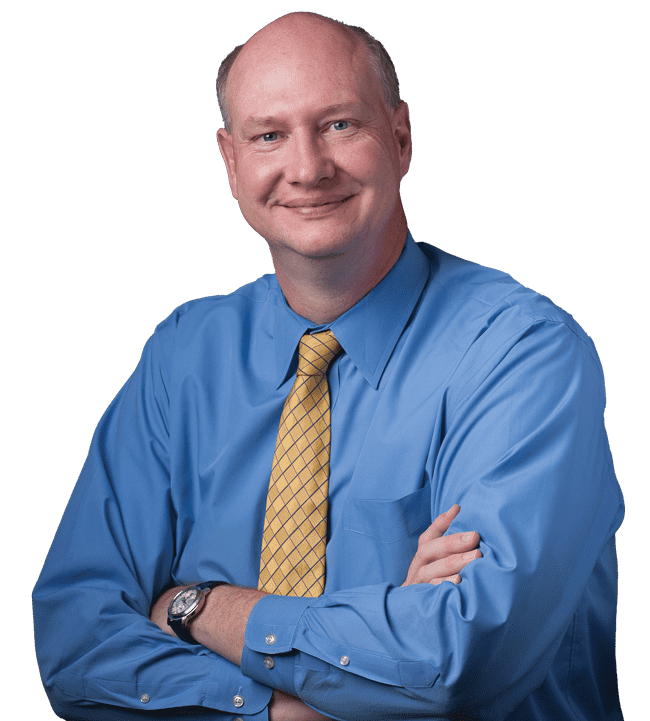
Dr. Edward Murphy is a Professor of Astronomy at the University of Virginia, where he also earned his PhD. In addition to his university teaching duties, Professor Murphy is particularly dedicated to public outreach and teaching the wonders of astronomy to adults and children alike. He was a postdoctoral fellow and an associate research scientist at Johns Hopkins University in Baltimore, where he worked on NASA’s Far Ultraviolet Spectroscopic Explorer (FUSE). In 2000, he joined the faculty at the University of Virginia, where he used FUSE, along with radio telescopes, in his research on the interstellar medium. Professor Murphy was named a University of Virginia Office of Engagement Outstanding Faculty Speaker in 2012, and was awarded the University of Virginia Alumni Association Distinguished Professor Award in 2014. He has taught one Great Course: Our Night Sky.
Thomas Noble
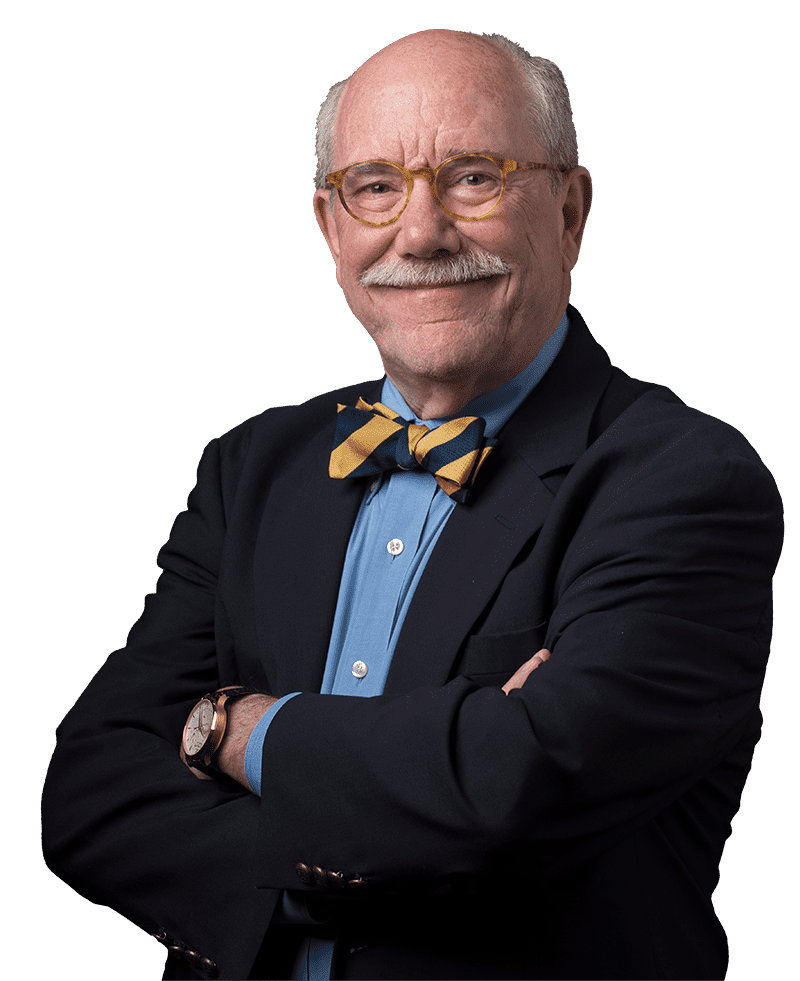
Dr. Thomas F. X. Noble is Andrew V. Tackes Professor of History Emeritus at the University of Notre Dame. His passion for the Classical worlds of ancient Greece and Rome has led him to lead numerous tours throughout the region for decades. Professor Noble received his MA in History and Latin and PhD in Medieval History from Michigan State University. He is a widely published scholar, and is the author, coauthor, or editor of 12 books, including the coauthored textbook, Western Civilization: The Continuing Experiment, now in its 7th edition. Professor Noble produced 4 Great Courses, including all-time customer favorite Foundations of Western Civilization, plus Popes and the Papacy: A History, and The World of Late Antiquity: Crisis and Transformation.
James Pfrehm

Dr. James Pfrehm is an independent scholar who taught German language, literature, and culture at the university level for more than 20 years. He has a deep passion for sharing his love of German and Austrian cultures. In addition to studying and conducting research in Germany and Austria, Professor Pfrehm has led many student tours to both countries. As an associate professor at Ithaca College, he was recognized for his outstanding teaching and commitment to his students. He has a PhD in Germanic Linguistics from the University of Wisconsin–Madison. Professor Pfrehm is the author of the book Technolingualism: The Mind and the Machine. For The Great Courses, he has created both The Great Tours: Germany and Austria and Learning German: A Journey through Language and Culture.
Rosana Resende
Dr. Rosana Resende is Chair of the Western Hemisphere Area Studies Division, Foreign Service Institute, of the US Department of State. Fluent in Spanish (and Portuguese), Professor Resende is a Latin America expert who chairs training curriculum for U.S. foreign affairs community working in or on Western Hemisphere countries. Previously, she taught for 12 years at the University of Florida Center for Latin American Studies. By training, Professor Resende is a cultural anthropologist whose research interests focus on the differentiated impacts of globalization and neoliberalism on the lived experiences of Latin Americans across social sectors. Specifically, her work addresses questions of migration, urbanization, labor, and tourism as encounters, and she has been the recipient of both institutional and national awards. Professor Resende received her PhD in Anthropology from the University of Florida. She is working on a course on the world of Latin America for The Great Courses.

Sarah Rugheimer
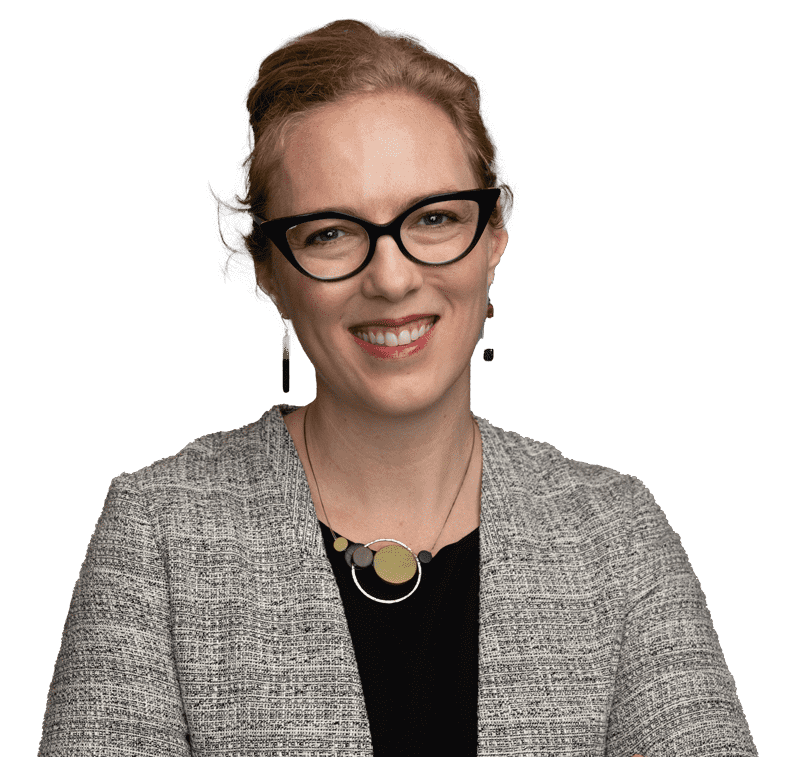
Dr. Sarah Rugheimer is an astrophysicist and the Allan I Carswell Chair at York University in Toronto. Her work is focused on how to detect life on an exoplanet by looking for atmospheric biosignatures and her research interests are modelling the atmosphere and climate of extrasolar planets, with a particular focus on atmospheric biosignatures in Earth-like planets, as well as modelling early Earth conditions.
Sarah earned her bachelor’s degree in physics at the University of Calgary, and her MA and PhD at Harvard in Astrophysics. She then took the Simons Origins of Life Research Fellowship at St. Andrews, followed by a Glasstone Research Fellowship at Oxford. In addition to research, Sarah is interested public outreach. Her TED talk “The Search for Microscopic Aliens” has 1.7 million views on TED.com. She previously has been awarded the Barrie Jones Award and the BSA Rosalind Franklin Lectureship in 2019, and the Caroline Herschel Lectureship Prize in 2018. Her astrobiology course for the public is available on Amazon Audible Originals, partnered with the Great Courses, called Searching for Extraterrestrial Life. Partnering with the Great Courses again, she is releasing a course on the wonders we are discovering with JWST in 2025.
Joyce E. Salisbury
Dr. Joyce E. Salisbury is a Professor Emerita of Humanistic Studies at the University of Wisconsin–Green Bay. She Salisbury began her career conducting research in Spain and has led tours there for several decades. Professor Salisbury has appeared on PBS specials and on the History Channel. In addition, she has been invited to lecture in many venues around the world for her ability to bring the past alive. Professor Salisbury has been widely recognized for her teaching abilities, including being named Professor of the Year in 1991 by the Council for Advancement and Support of Education. She has taught three times on Semester at Sea, a study-abroad program on a ship that circumnavigates the world with more than 500 students for a full semester. Professor Salisbury earned her Ph.D. in Medieval History at Rutgers University, specializing in religious and social history. She has written more than 10 books, including the widely used textbook, The West in the World; and created 4 Great Courses: The History of Spain: Land on a Crossroad, Warriors, Queens, and Intellectuals: 36 Great Women Before 1400, The Middle Ages Around the World, and The Story of the Mediterranean World.

Catherine Scallen
Dr. Catherine Scallen is the Andrew W. Mellon Professor Emerita in the Humanities at Case Western Reserve University (CWRU), where she taught courses in art history covering Italy, France, Germany, and the Low Countries in the period 1400-1800. As a seasoned traveler to western Europe, she has served as a faculty lecturer for tour groups from Princeton University, the Cleveland Museum of Art, and CWRU. Has led art history tours of the Italian Renaissance, as well art tours of Holland and Belgium, among many others. She earned her PhD in Art History from Princeton University. Widely published, Professor Scallen is the author of Rembrandt, Reputation, and the Practice of Connoisseurship. She has taught two Great Courses: Art of the Northern Renaissance and Museum Masterpieces: The National Gallery, London.
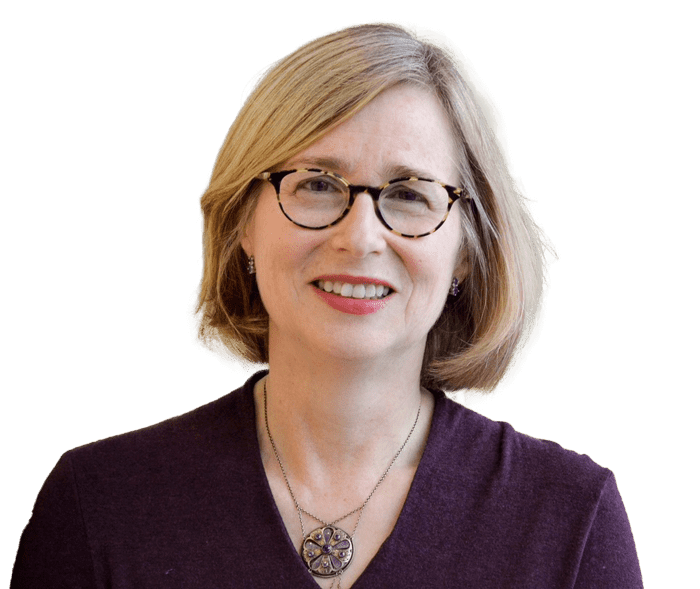
Exploring Italy’s Renaissance: Da Vinci and Michelangelo
Scott Solomon
Dr. Scott Solomon is a Teaching Professor in BioSciences and a Research Associate at the Smithsonian Institution’s National Museum of Natural History. Dr. Solomon’s research examines the ecology and evolution of insects, microbes, and humans. He has a PhD in Ecology, Evolution, and Behavior from the University of Texas at Austin, where his research examined the evolutionary basis of biological diversity in the Amazon Basin. He is the author of Becoming Martian: How Living in Space Will Change Our Bodies and Minds and Future Humans: Inside the Science of Our Continuing Evolution. Among his awards, Professor Solomon received the George R. Brown Award for Superior Teaching, the Excellence in Outreach Award from Rice's Wiess School of Natural Sciences, and the Outstanding Undergraduate Research Mentor Award from Rice University. His writing and photography have appeared in such publications as Aeon, Nautilus, Slate, and WIRED. He is the creator and host of the podcast Wild World with Scott Solomon. Professor Solomon has taught two Great Courses: What Darwin Didn’t Know: The Modern Science of Evolution and Why Insects Matter: Earth’s Most Essential Species.
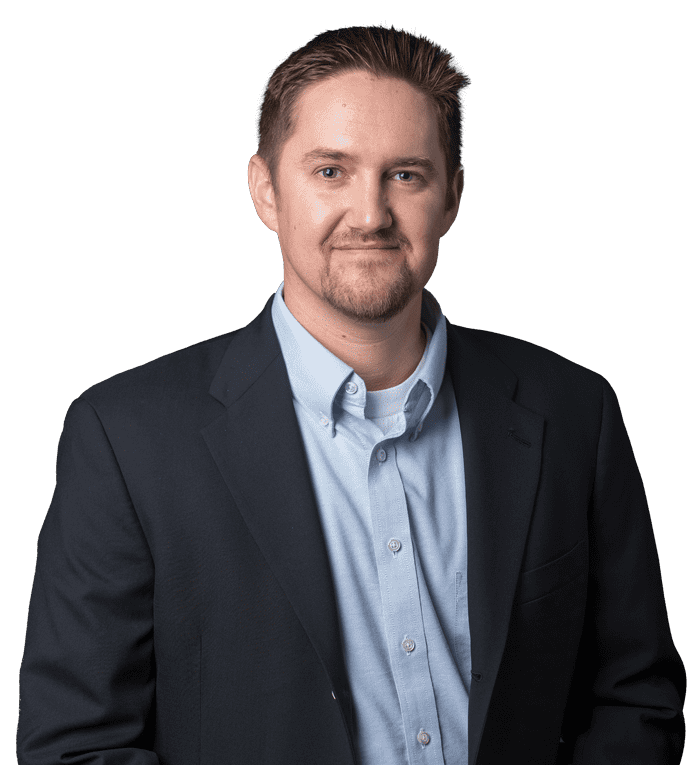
Michael Shelden Stone
Dr. Michael Shelden is a highly acclaimed author and professor. He is the Dean’s Research Professor in the College of Liberal Arts at Purdue University. Professor Shelden has written six biographies, including Orwell: The Authorized Biography, which was a New York Times Notable Book and a finalist for the Pulitzer Prize; Young Titan: The Making of Winston Churchill; and New York Times bestseller Mark Twain: Man in White. His work has appeared in a wide range of publications, including The Times of London; the Shakespeare Quarterly; the Columbia Journalism Review; and the Guardian (UK). In addition, he was a features writer for The Daily Telegraph of London from 1995 to 2007. Professor Shelden has taught four Great Courses, including England, the 1960s, and the Triumph of the Beatles; How Winston Churchill Changed the World; George Orwell: A Sage for All Seasons; and Reconsidering JFK.
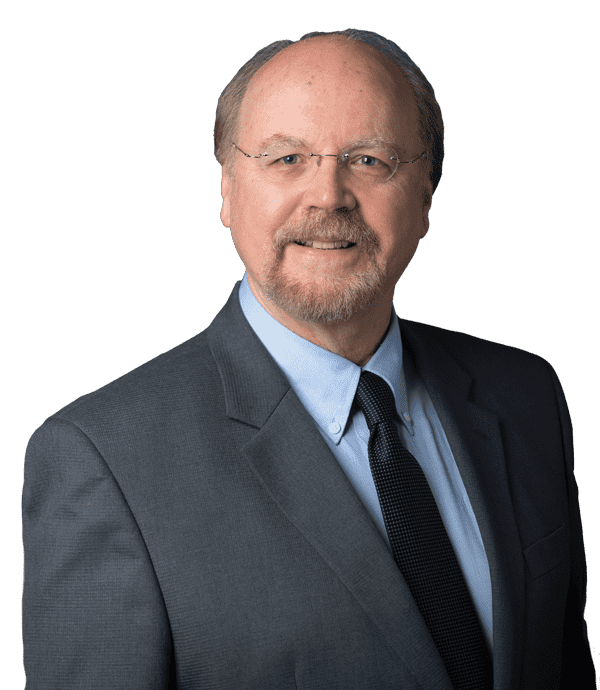
David Stone
Dr. David R. Stone is the William E. Odom Professor of Russian Studies at the U.S. Naval War College. He received his Ph.D. in History from Yale University. He has written or edited several books on military history, including Hammer and Rifle: The Militarization of the Soviet Union, 1926–1933, which won the ASEEES Marshall D. Shulman Book Prize and the Historical Society Best First Book Prize. He is also the author of dozens of articles on Russian military history and foreign policy, and he is the expert presenter of the course World War II: Battlefield Europe.

80th Anniversary of D-Day
Carol Symes
Dr. Carol Symes is an Associate Professor of History, Theatre, Classics, and Medieval Studies at the University of Illinois at Urbana-Champaign. She has taught courses extensively in Medieval England, Medieval civilization, Shakespeare, and Shakespeare’s England. Professor Symes’s research focuses on medieval and premodern media of communication, including histories and performance texts. She is the founding executive editor of the journal The Medieval Globe, on the interconnectedness of the Medieval world. An ongoing research project of hers, Shakespeare in Chains, explores how the experience of enclosure, vagabondage, criminalization, and incarceration shaped the actors, audiences, and plays of Tudor-Stuart England. A professional actor and theater practitioner, she trained at the Old Vic Theatre School in Bristol, England. Professor Symes’s book A Common Stage: Theatre and Public Life in Medieval Arras earned the American Historical Association’s Herbert Baxter Adams Prize, among other honors. She is also co-author of the bestselling Western Civilizations. Professor Symes earned her PhD in History from Harvard University. For The Great Courses, she created The Medieval Legacy.
Larissa 'Kat' Tracy

Dr. Larissa Tracy is the Visiting Assistant Teaching Professor of English at University of Maryland, Baltimore County. Her research focuses on 13th- to 15th-century literature with cross-cultural contacts and what such literature reveals about law violence, judicial torture and punishment, and social justice. Professor Tracy’s work covers German medievalisms, including Nazi appropriations of Arthurian and Old Norse traditions, as well as medieval German texts such as the Nibelungenlied and its Norse analogues. Additionally, her research into torture and brutality includes laws of the German principalities and the Holy Roman Empire. She has appeared in several National Geographic and Discovery Channel documentaries, and her work has been published by Salon.com, Business Insider, Elite Daily, Entertainment Weekly, The Wrap, and The New York Times “Women of the World” supplement. Professor Tracy received her PhD in Medieval Literature from Trinity College Dublin. Among the books she’s authored are Torture and Brutality in Medieval Literature, Medieval and Early Modern Murder, and Wounds and Wound Repair in Medieval Culture. For The Great Courses, she produced the Audible Original The Culture of Knighthood in Medieval Romance and is developing a new Great Course on Medieval Christianities.
Steven L. Tuck

Dr. Steven L. Tuck is Professor of History and Classics at Miami University. He has conducted archaeological fieldwork and research in Italy, Greece, England, and Egypt, and has directed more than 20 study tours in Italy, concentrated on the city of Rome and the area around the Bay of Naples, including Pompeii, Herculaneum, and the Island of Capri. Professor Tuck received the 2013 E. Phillips Knox Teaching Award, Miami University’s highest honor for innovative and effective undergraduate teaching. In addition, the Archaeological Institute of America, North America’s oldest and largest organization devoted to archaeology, presented him with its Excellence in Undergraduate Teaching Award in 2014. He received his Ph.D. in Classical Art and Archaeology from the University of Michigan. Professor Tuck is the author of A History of Roman Art and has taught several Great Courses, including Pompeii: Daily Life in an Ancient Roman City, Experiencing Rome: A Visual Exploration of Antiquity’s Greatest Empire, The Mysterious Etruscans, The Architecture of Power: Great Palaces of the Ancient World, and Cities of the Ancient World.
Brittany Warman

Dr. Brittany Warman is a folklorist, teacher, writer, and a cofounder of The Carterhaugh School of Folklore and the Fantastic. Based out of the Washington, DC, metro area, she earned her PhD in English and Folklore from the Ohio State University writing her dissertation on fairy tales and Gothic literature. Brittany has authored and coauthored multiple academic articles and book chapters and has lectured at venues across the US and the UK, including the Smithsonian, FaerieCon, and The Folklore Podcast. The Carterhaugh School won the Dorothy Howard Prize from the American Folklore Society for their work in bringing scholarly rigor to the field of fantasy literature.
Jennifer Verdolin
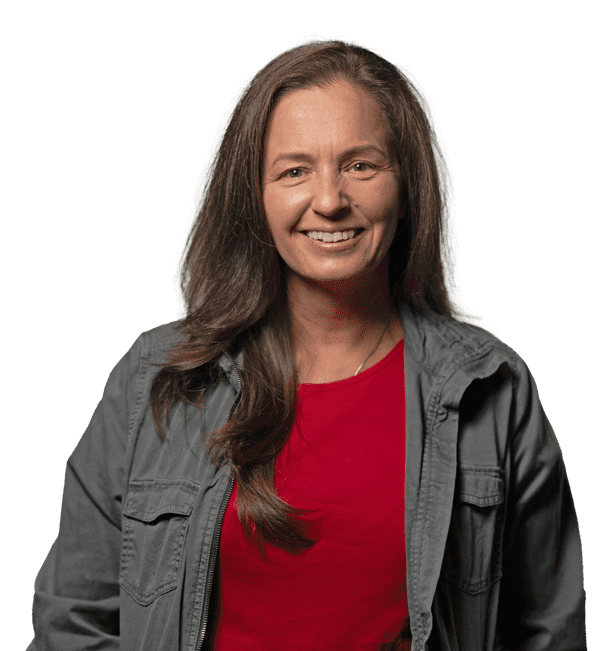
Dr. Jennifer Verdolin is an Associate Professor at Empire State University and an animal behavior scientist, author, speaker, and conservationist, in addition to being a former Fulbright Scholar. She’s developed a passionate interest in the heritage and wild beauty of Iceland, pursuing independent research into Iceland, including its language, land, cultures, and animals. Professor Verdolin earned a PhD in Ecology and Evolution from Stony Brook University. Her writing and research on animal and human behavior have appeared in The Washington Post, Scientific American, and National Geographic. She is also the author of the popular nonfiction books Wild Connection and Raised by Animals, and she has contributed to multiple podcasts, radio shows, and wildlife documentaries. For The Great Courses, she taught The Great Tours: Iceland and the Audible Original Reconnect with Nature: Lessons from the Natural World.
Michael Wysession

Dr. Michael E. Wysession is the Professor of Earth and Planetary Sciences at Washington University in St. Louis. An established leader in seismology and geophysical education, Professor Wysession is noted for his development of a new way to create three-dimensional images of Earth's interior from seismic waves. These images have provided scientists with insights into the makeup of Earth and its evolution throughout history. He is the coauthor of An Introduction to Seismology, Earthquakes, and Earth Structure; the lead author of Physical Science: Concepts in Action; and the primary writer for the texts Earth Science, Earth's Interior, Earth's Changing Surface, and Earth's Waters. Professor Wysession has received the Innovation Award of the St. Louis Science Academy and the Distinguished Faculty Award of Washington University and in 2014 the inaugural Ambassador Award of the American Geophysical Union. Professor Wysession earned his ScB in Geophysics from Brown University and his PhD from Northwestern University. He has created three Great Courses, including, The World’s Greatest Geological Wonders: 36 Spectacular Sites, How the Earth Works, and The Science of Energy: Resources and Power Explained; and he contributed to National Geographic Polar Explorations.
Darius Arya is the Director of the American Institute for Roman Culture. He has led excavations, including at the Roman site of Ostia Antica, and taught university programs in Italy. He is also a Fulbright Scholar, a fellow of the American Academy in Rome, and a guest scholar of the Getty Conservation Institute. He has appeared on HISTORY®, National Geographic, and Discovery, as well as BBC Radio 4 and CNN, and he hosted the PBS series Ancient Invisible Cities.
Dr. Robert Greenberg is Music Historian-in-Residence with San Francisco Performances. A graduate of Princeton University, Professor Greenberg holds a Ph.D. in Music Composition from the University of California, Berkeley. He has seen his compositions–which include more than 45 works for a wide variety of instrumental and vocal ensembles–performed all over the world, including New York, San Francisco, Chicago, Los Angeles, England, Ireland, Greece, Italy, and the Netherlands.
He has served on the faculties of the University of California, Berkeley; California State University, Hayward; and the San Francisco Conservatory of Music, and has lectured for some of the most prestigious musical and arts organizations in the United States, including the San Francisco Symphony, the Lincoln Center for the Performing Arts, the Van Cliburn Foundation, and the Chicago Symphony. For The Great Courses, he has recorded more than 500 lectures on a range of composers and classical music genres.
Professor Greenberg is a Steinway Artist. His many other honors include three Nicola de Lorenzo Composition Prizes and a Koussevitzky commission from the Library of Congress. He has been profiled in various major publications, including The Wall Street Journal; Inc. magazine; and the London Times.
Khristin N. Montes is an Assistant Professor of Art History in the Department of Fine and Performing Arts. She is a broadly trained art historian with additional background in anthropology, archaeology, and museum studies. Her specific areas of research include Maya and Aztec art and architecture, Indigenous American visual culture and research methodologies, and intersections between art production and social justice. Dr. Montes has recently published on exhibition practices involving Native American, Maya, and African objects in museums; sacred landscapes and architecture in the Maya world; and on the importance of decolonizing college and university-level art history curriculum. Before joining Regis University, she was the Project Facilitator for the Cultural Heritage, Ecology, and Conservation of Yucatec Cenotes Project–a cultural and environmental sustainability and educational project that took place in nine Maya communities between 2018 and 2020. The “Cenotes Project” was jointly organized through InHerit (Indigenous Heritage Passed to Present) at the University of North Carolina at Chapel Hill and the Universidad de Oriente in Valladolid, Yucatán, Mexico, and sponsored by the National Geographic Society. Dr. Montes holds a Ph.D. from the University of Illinois Chicago and M.A.s from Northern Illinois University.
Jennifer Paxton is a Clinical Associate Professor of History at The Catholic University of America. She is also the Associate Dean of Undergraduate Studies and director of the University Honors Program. She was previously a Professorial Lecturer in History at Georgetown University, where she taught for more than a decade. Jennifer received her Ph.D. in History from Harvard University, where she also taught and earned a Certificate of Distinction in Teaching. She is a widely published, award-winning writer and a highly regarded scholar, earning both a Mellon Fellowship in the Humanities and a Frank Knox Memorial Fellowship.
Jennifer lectures regularly at the Smithsonian Institution and serves as an expert on Scotland and Ireland programs for Smithsonian. Her research focuses on England from the reign of King Alfred to the late 12th century. She is particularly interested in the intersection between the authority of church and state and the representation of the past in historical texts, especially those produced by religious communities. She is completing a book that examines how monastic historians shaped their narratives to project present polemical concerns onto the past. She is also working on a project that examines changing views of abbatial leadership across the Anglo-Norman world in the 11th and 12th centuries.
Joyce E. Salisbury is Professor Emerita of Humanistic Studies at the University of Wisconsin–Green Bay, where she taught history and served as associate dean of Liberal Arts and Sciences and director of International Education. She earned her Ph.D. in Medieval History at Rutgers University, specializing in religious and social history.
Professor Salisbury began her career performing research in Spain, and she has continued to travel there to conduct further research, lecture, and guide students and other travelers. She is currently working on a book about the history of early Christian martyrdom.
In addition to receiving the University of Wisconsin’s Outstanding Teaching award, she was named Professor of the Year in 1991 by the Council for Advancement and Support of Education. She has taught three times on Semester at Sea, a study-abroad program on a ship that circumnavigates the world with more than 500 students for a full semester.
Professor Salisbury is a prolific author whose books include the award-winning Perpetua’s Passion: Death and Memory of a Young Roman Woman; The Beast Within: Animals in the Middle Ages; Rome’s Christian Empress: Galla Placidia Rules at the Twilight of the Empire; and the widely used textbook The West in the World. She has been interviewed many times on National Public Radio on topics from religion to the books she has written, and she appeared on the PBS special The Road from Christ to Constantine.
An award-winning professor, Dr. Sarah Rugheimer is an astrobiologist and astrphysicist at Jesus College Oxford. Her research focuses on the atmospheric composition of exoplanets, and ways of detecting life. After completing her Ph.D. in 2015, she received a three-year Simons Origin of Life Fellowship, which she undertook at the University of St Andrews. Dr. Rugheimer’s accomplishments include the 2018 Caroline Herschel Prize winner for Promising Female Junior Astronomer in the UK, the Rosalind Franklin Award Lecture for Physical Sciences and Mathematics by the British Science Association, The Barrie Jones Award Lecture, and being selected as a TED Fellow.
Dr. Rugheimer earned her bachelor's degree in physics at the University of Calgary. She completed her master’s and Ph.D. in Astronomy and Astrophysics at Harvard University. She co-hosts a podcast with Dr. Sarah Ballard, called 'Self-care with Drs. Sarah,' which covers topics such as women in science and navigating academic careers.
Dr. Stuart Sutherland is a Professor in the Department of Earth, Ocean and Atmospheric Sciences at The University of British Columbia (UBC). Raised in the United Kingdom, he earned an undergraduate degree in geology from the University of Plymouth and a Ph.D. in Geological Sciences from the University of Leicester for his studies on Silurian microfossils called chitinozoa. Professor Sutherland discovered his passion for teaching during an appointment at Brunel University in London. He went on to postdoctoral research at the Natural History Museum in London, working with other paleontologists to understand the Devonian organic-walled microfossils of the Cantabrian Mountains of northern Spain. During this time, he completed a postgraduate teaching degree at Sheffield Hallam University. Since 2000, Professor Sutherland has been on the faculty at UBC’s Vancouver campus, where his interests center on Earth history and paleontology. He is a three-time winner of the UBC Earth and Ocean Sciences Teaching Award. He also received the Faculty of Science Teaching Award and the Killam Teaching Prize, and he was named a “popular professor” in two editions of Maclean’s Guide to Canadian Universities. Dr. Sutherland is the professor of two popular Wondrium courses: A New History of Life and Paleontology.
Enter your name and email and we will keep you up to date on trips that are coming soon. PLUS, you will be able to download a digital version of our beautiful full color 2025-2026 travel catalog.
Get updates on NEW destinations and a FREE catalog right to your inbox.

Copyright 2026 The Teaching Company Sales, LLC. | Destinations | Terms & Conditions | Privacy Policy
Sign up to receive the latest trip updates and instant access to a digital version of our full-color 2025–2027 travel catalog. You will also have the option to share your mailing address and we’ll send a printed copy of our next catalog to your door.
Stay Updated and Receive a FREE Catalog

Request your copy of our full color travel catalog
Highlights
Uncover the dynastic ambitions and historical significance of monuments like Hassan Tower and the Mausoleum of Mohammed V in Rabat.
Experience the stony landscape of the Agafay Desert on a camel trek, culminating in a breathtaking sunset over the High Atlas Mountains.
Admire the Islamic architecture in Marrakesh, from the grand Koutoubia Mosque and intricate Bahia Palace to the serene beauty of the Ben Youssef Madrasa.
Discover the University of al-Qarawiyyin, the world’s oldest continuously operating university, and engage in a discussion on its profound influence on global scholarship.
Wander through the labyrinthine alleyways of the UNESCO-listed Medina in Fes, where vibrant stalls overflow with textiles, spices, and artisanal crafts.
Sign up to receive the latest trip updates and instant access to a digital version of our beautiful full-color 2025–2027 travel catalog. You will also have the option to share your mailing address and we’ll send a printed copy of our next catalog to your door.
)



%20(4)-v1.png)








